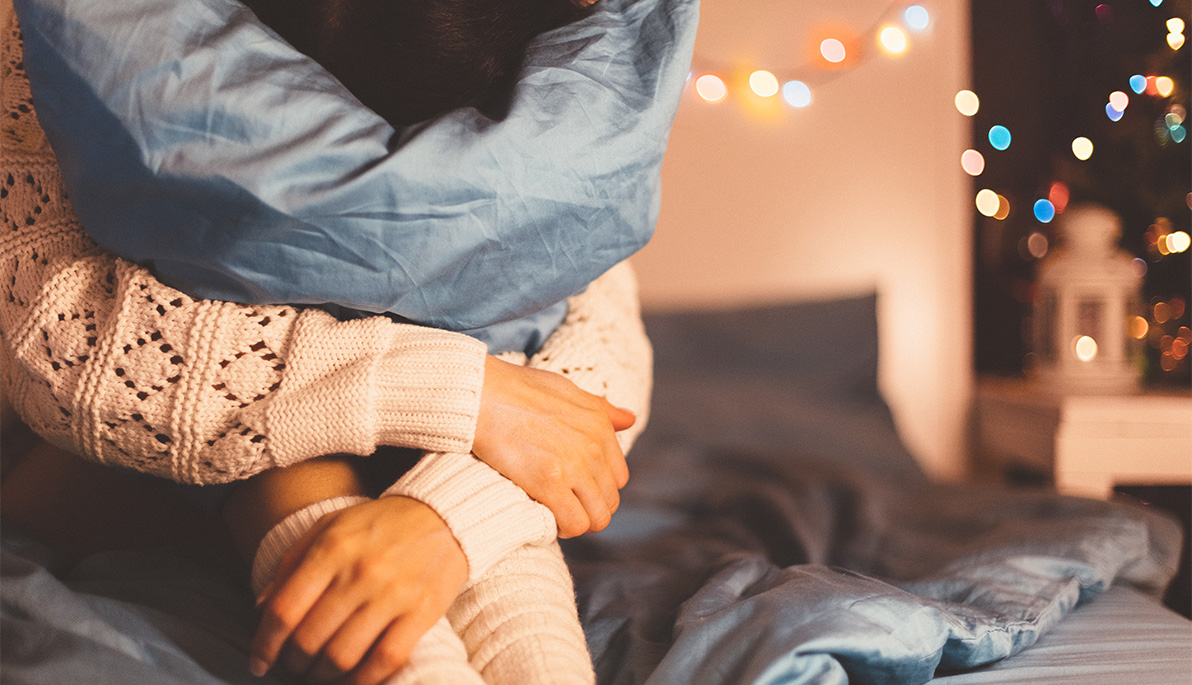News
Managing Pandemic and Holiday Stress
December 14, 2020
While the holidays may conjure feelings of welcomed nostalgia and joy, for many, it’s a time of grief, loneliness, and anxiety. In a year full of change and ambiguity caused by COVID-19, determining whether these feelings are the result of the “holiday blues” or something more serious can be especially challenging.
The holidays have been known to cause anxiety from having too much to do, but due to the pandemic, the 2020 holiday season is now creating a new phenomenon: increased isolation, lack of hustle and bustle, and the forfeiture of usual routines in the name of public health. COVID-19 cases continue to rise, and health officials urge families to celebrate among their own households to contain and prevent virus spread. For many, this means that time-honored holiday traditions will need to be reimagined or canceled altogether.
The loss of a traditional holiday season can contribute to feelings of depression and added stress on top of an already anxiety-inducing year, but Liat Jarkon, D.O., psychiatrist and director of the Center for Behavioral Health (CBH) at NYIT College of Osteopathic Medicine (NYITCOM) wants people to know there is hope.
“While the holidays will look and feel different this year as many of us will be connecting remotely to our families, I encourage you to stay connected none-the-less,” says Jarkon. “Use whatever means you’re comfortable with—Facetime, Zoom, telephone, or text. Your family, friends, and you will all benefit from this contact as we all navigate this unusual holiday season together. Celebrating virtually is different and untraditional, but it is still celebrating, and we can all certainly use that now. It’s important to discuss the obvious changes occurring this year, start new traditions, and encourage loved ones to verbalize how they feel.”
Young adults may experience holiday stress more strongly than others, including college students. The Centers for Disease Control and Prevention’s (CDC) Household Pulse Survey shows that 18- to 29-year-olds account for the highest percentage of adults who report symptoms of anxiety or depression. The report also found that between September 30 and October 12 (the survey’s most recent dates available), 44.7 percent of participants in this age group reported feelings of anxiety or depression.
If you suspect a college student or loved one of any age is struggling with mental health issues, Jarkon advises to look for key changes in behavior and encourage that person to seek help.
“A change in behavior including loss of interest in activities, isolating, and avoiding social interactions and friends may indicate that someone is struggling,” she says. “Other serious signs not to be ignored include if an individual actually states that they feel like a burden to others, they don’t see the purpose in living, they would be better off dead, or that they no longer see the point of life. These should all be taken very seriously. Some individuals will also start to give their belongings away, straighten out their affairs, and even write letters to their loved ones. None of these behaviors should be ignored, as they could be warning signs that someone is contemplating suicide.”
Jarkon assures people who feel emotionally unsettled during the holidays, or anytime, to know that they are not alone.
The CBH offers psychiatric and psychological services that are confidential, discreet, readily available, and currently completely via telemedicine on a HIPAA compliant Zoom health platform. Contact the CBH, follow the Center on Twitter (@NYITCenterforBH), and on Instagram and Facebook (@nyitahcc) for daily postings on mental health.
Additional recommended mental health resources.





